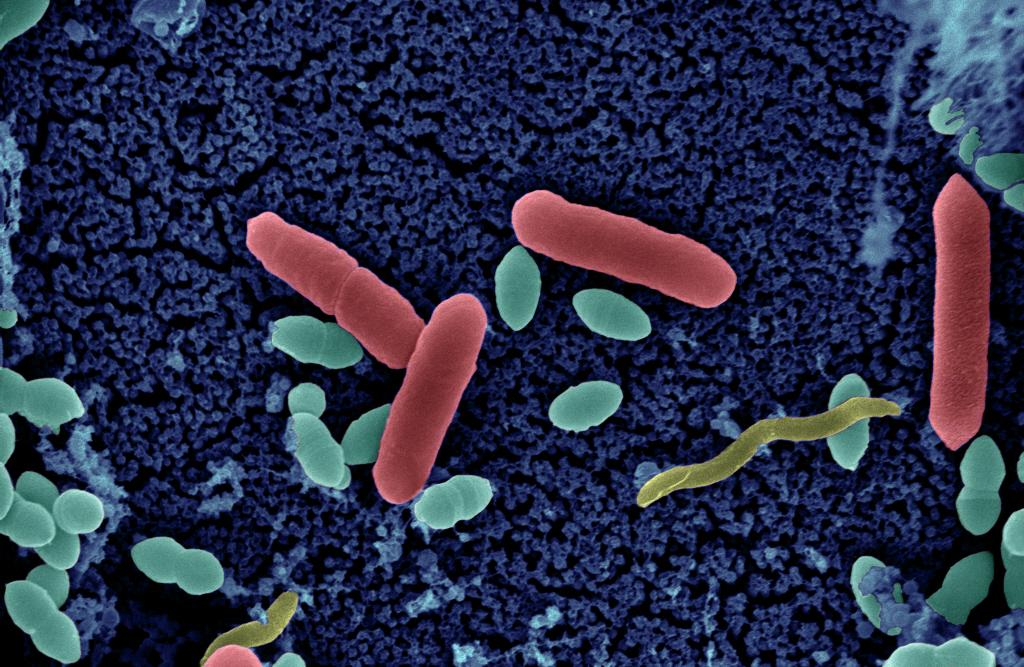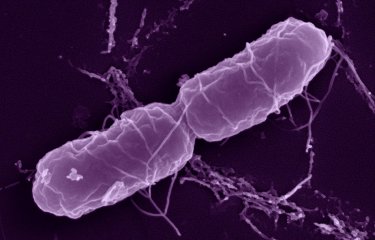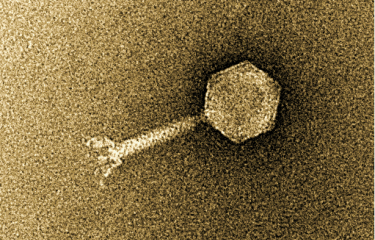In a study published online May 28th for the Lancet Infectious Diseases medical journal, scientists at the Institut Pasteur in Paris and the Institut Pasteur in Morocco once again bring attention to the rapid worldwide spread of Salmonella Kentucky (S. Kentucky), a bacterium showing resistance to several classes of antibiotics. S. Kentucky is responsible for foodborne infections and has spread at an astonishing rate throughout Africa and the Middle East in the space of only a few years. In this study, the authors note that the bacterium has recently spread to India and South-East Asia and has acquired new resistance, particularly resistance to antibiotics of “last resort”. The scientists also point out the considerable risk of this multi-resistant strain spreading to farmed poultry in industrialized countries. This bacterium has already been detected in farmed turkeys in Europe.
Press release
Paris, May 29, 2013

The first strain of multi-antibiotic resistant Salmonella Kentucky (S. Kentucky) was isolated in December 2002 in a French tourist who became ill during a cruise on the Nile river. Since then, this strain of bacteria has been closely monitored by the French National Reference Center (CNR) for Escherichia coli, Shigella, and Salmonella in the Enteric Bacterial Pathogens Unit at the Institut Pasteur in Paris. This has enabled the CNR to identify a rising number of strains isolated in travelers or migrants during trips to Egypt or East Africa (2000-2005) as well as to North Africa (mainly Morocco), the Middle East, and West Africa (2006-2009). This translates to hundreds of cases each year.
A study published by the team of researchers working under Dr. François-Xavier Weill (head of the CNR and the Enteric Bacterial Pathogens Unit at the Institut Pasteur in Paris), in collaboration with the Institut Pasteur in Morocco, looks at the recently expanded contamination zones of S. Kentucky and its ability to acquire new resistance. The scientists data show that the bacterium continues to spread at an astonishing pace, particularly in Mediterranean countries, and that it can now be contracted in India and South-East Asia. In addition, the authors of this study made the troubling observation that a number of strains recently acquired in the Mediterranean Basin are showing a range of resistance towards all antibiotic classes used to treat severe cases of salmonellosis (fluoroquinolones, third generation cephalosporin, and carbapenem).
Dr. Simon Le Hello, co-head of the CNR and lead author of this study, worries that this bacterial strain may soon spread to poultry farms in Europe. Using methods developed by the Institut Pasteur to identify this strain of S. Kentucky, several studies have recently identified the bacterium in farm-raised turkeys in several European countries. If this infection should spread further the direct consequence would be the threat of an epidemic in Europe and the risk of exhausting treatment options because of S. Kentucky’s numerous resistances.
As far back as 2011, an international collaboration led by this same team from the Institut Pasteur sounded the alert revealing the emergence of S. Kentucky in African and Middle Eastern countries as well as the principal reservoir in Africa as poultry (chickens and turkeys) and the secondary vehicles as seafood and spices (see our August 3, 2011 press release). At that time, the scientists observed that the bacterium had acquired a series of resistances because of the massive overuse of antibiotics in African poultry farming.
Because of the troubling nature of this study’s results, its authors issue the following reminders: firstly, that the non-regulated and excessive use of antibiotics on farm-raised livestock in developing countries presents a major health risk because it encourages the dissemination of resistant genes to bacteria which, foodborne, could contaminate humans. Secondly, that it is important to monitor S. Kentucky on both national and international fronts. They are therefore calling for this bacterium to be included in national salmonella control programs in the poultry industry.
--
Illustration – Copyright Institut Pasteur
Caption – Salmonella in scanning electron microscopy (bacillus in red), bacterium responsible for foodborne infections.
For more informations
Read our earlier press release on S. Kentucky:
http://drupal.web.pasteur.fr/fr/node/5559
Read our fact sheet on salmonellosis (in French):
http://drupal.web.pasteur.fr/fr/presse/fiches-info/salmonellose
Sources
Highly drug-resistant Salmonella enterica serotype Kentucky ST198-X1: a microbiological study, The Lancet infectious Diseases, online May 28, 2013.
Simon Le Hello (1), Dorothée Harrois (1), Brahim Bouchrif (2), Lucile Sontag (1), Dalèle Elhani (1), Véronique Guibert (1), Khalid Zerouali (3), François-Xavier Weill (1)
(1) Institut Pasteur, Enteric Bacterial Pathogens Unit, French National Reference Center for Escherichia coli, Shigella, and Salmonella, WHO Collaborating Center for Reference and Research on Salmonella, Paris, France.
(2) Food and Environmental Safety, Institut Pasteur in Morocco, Casablanca, Morocco.
(3) Microbiology laboratory, Ibn Rochd University Hospital, Casablanca, Morocco.
Institut Pasteur Press Office
Jérémy Lescène - +33 (0)1 45 68 81 01
Nadine Peyrolo – +33 (0)1 45 68 89 28
presse@pasteur.fr




